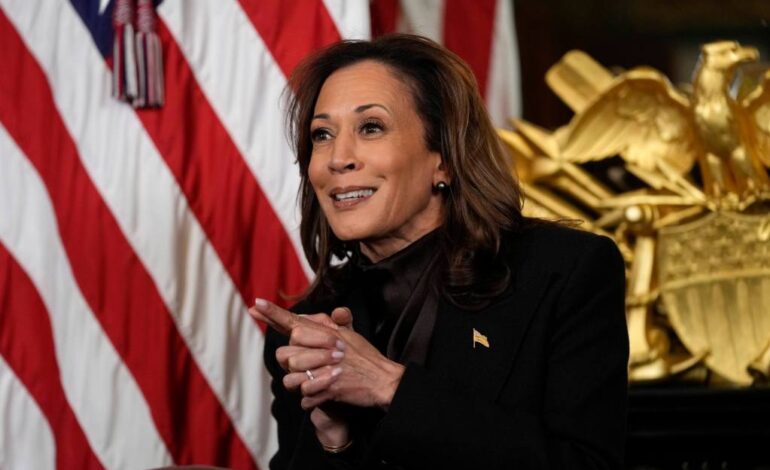Kamala Harris Withdraws from California Governor Race, Leaves Weak Field

Former Vice President Kamala Harris has officially announced that she will not run for governor of California, a decision that has both Democratic and Republican candidates eagerly adjusting their campaigns. Harris, who was widely considered the front-runner to replace Gavin Newsom, leaves behind a field that many observers deem uninspiring as the state heads toward its primary election in June 2024.
Throughout her political career, Harris has positioned herself as a mainstream liberal. As California’s Attorney General, she often aligned with police unions while attempting to portray herself as a progressive advocate for criminal justice reform. Given the numerous challenges facing the state—including a homelessness crisis, deteriorating infrastructure, and environmental issues—many believe that her governorship would have mirrored Newsom’s approach, which some view as ineffective.
With Harris out of the running, the Democratic field now consists of established figures and lesser-known candidates. The most prominent contenders include Lt. Gov. Eleni Kounalakis, Controller Betty Yee, and former legislative leader Toni Atkins. Critics argue that Kounalakis and Yee have not articulated distinctive platforms, while Atkins, despite her progressive stance, is known for her conciliatory nature. Tony Thurmond, the Superintendent of Public Instruction, is seen as closely aligned with teacher unions, raising questions about his independence on educational issues.
In the “has-been” category, former Attorney General Xavier Becerra and former Los Angeles Mayor Antonio Villaraigosa are also in the mix. Becerra’s tenure has been marked by controversies, particularly his close ties to police unions. Villaraigosa, once a formidable political figure, has seen his influence wane, even as he champions educational choice.
Among those with a more ideological approach is Katie Porter, the former Orange County representative. Porter is likely to advocate for high-tax, big-government policies, with a particular emphasis on single-payer healthcare and regulating corporate interests.
On the Republican side, candidates are emerging who appeal to a conservative base but may struggle to attract a broader electorate. Notable figures include former Fox News host Steve Hilton and Riverside County Sheriff Chad Bianco. Hilton balances between reformist ideas and provocative rhetoric, while Bianco is celebrated by law-and-order supporters but may not resonate with California’s more moderate voters.
One intriguing potential candidate is Rick Caruso, a Los Angeles developer who previously spent $100 million on a mayoral campaign and is now considering a run for governor. Caruso, who has shifted political affiliations from Republican to independent to Democrat, focuses on practical reform issues and has garnered attention for his critique of Los Angeles’ handling of wildfires. His financial resources could provide a competitive edge in the race.
As the primary approaches, there remains an opportunity for new candidates to enter the fray, potentially revitalizing a race that many view as lacking in dynamism. California’s complex challenges require innovative solutions, and the current Democratic and Republican fields have yet to inspire confidence among voters seeking effective leadership.






